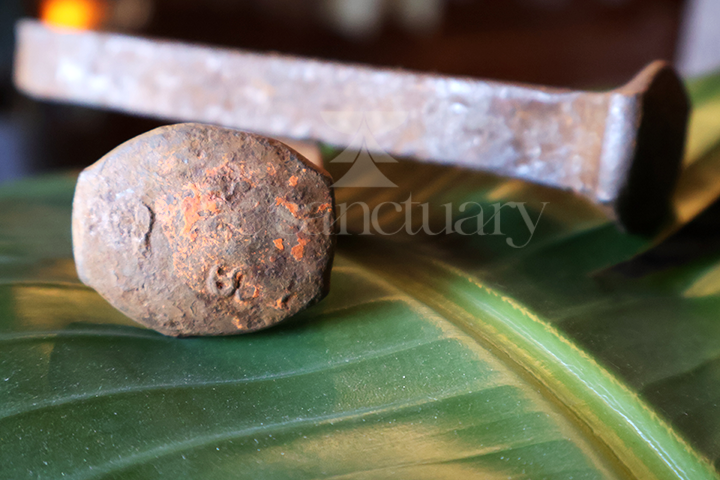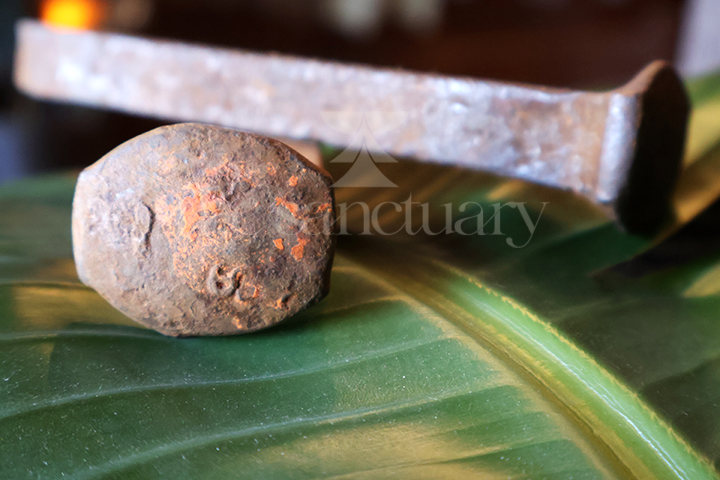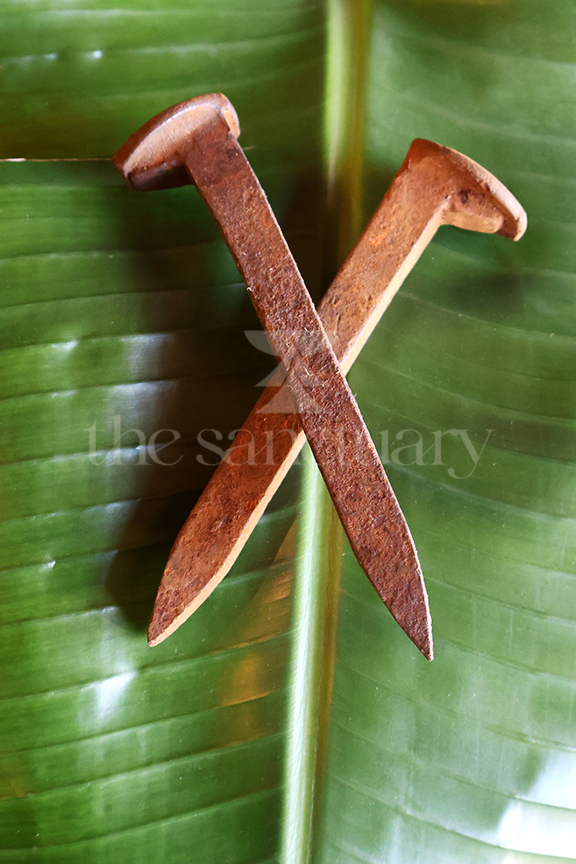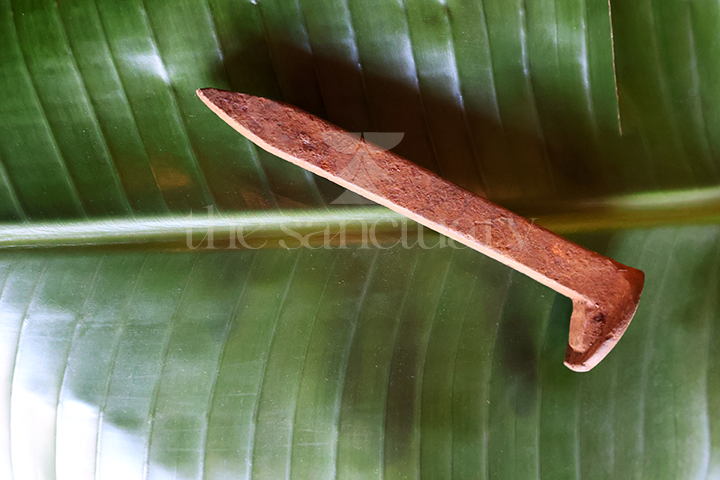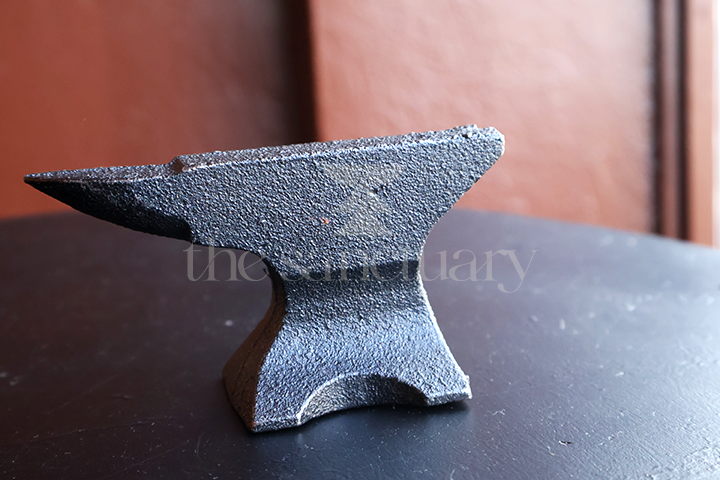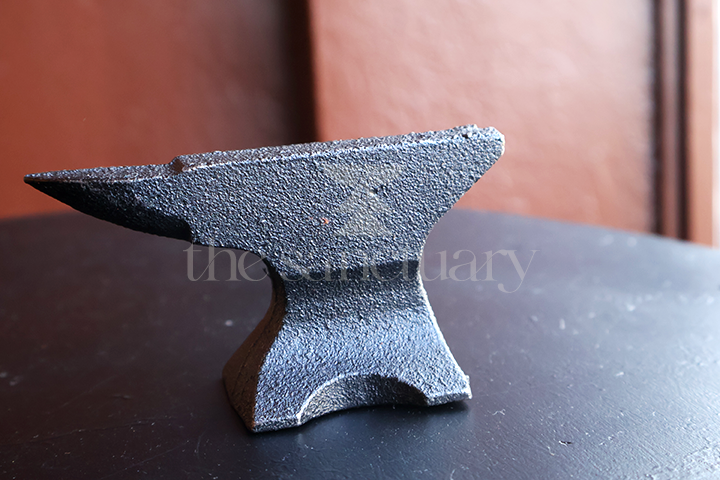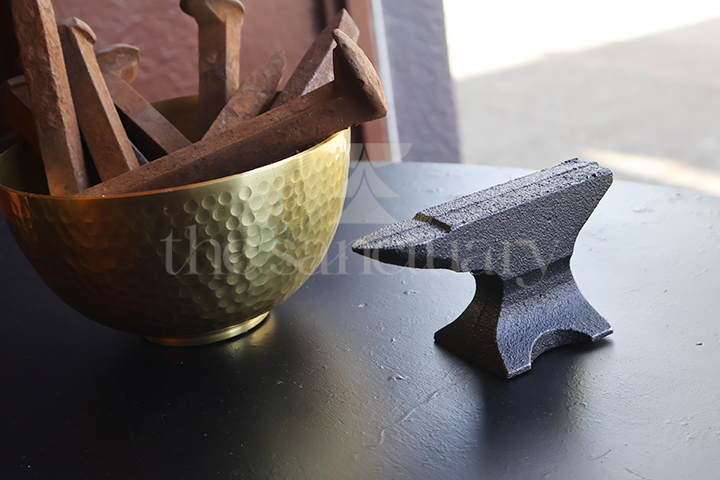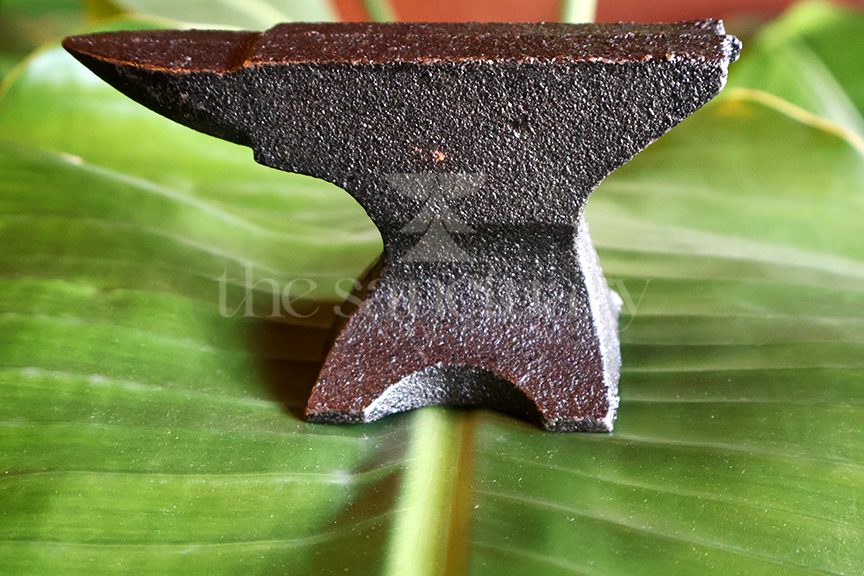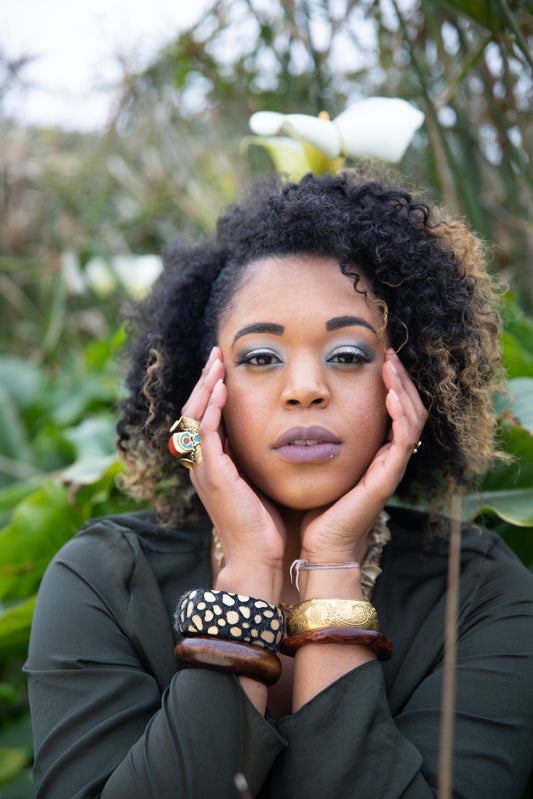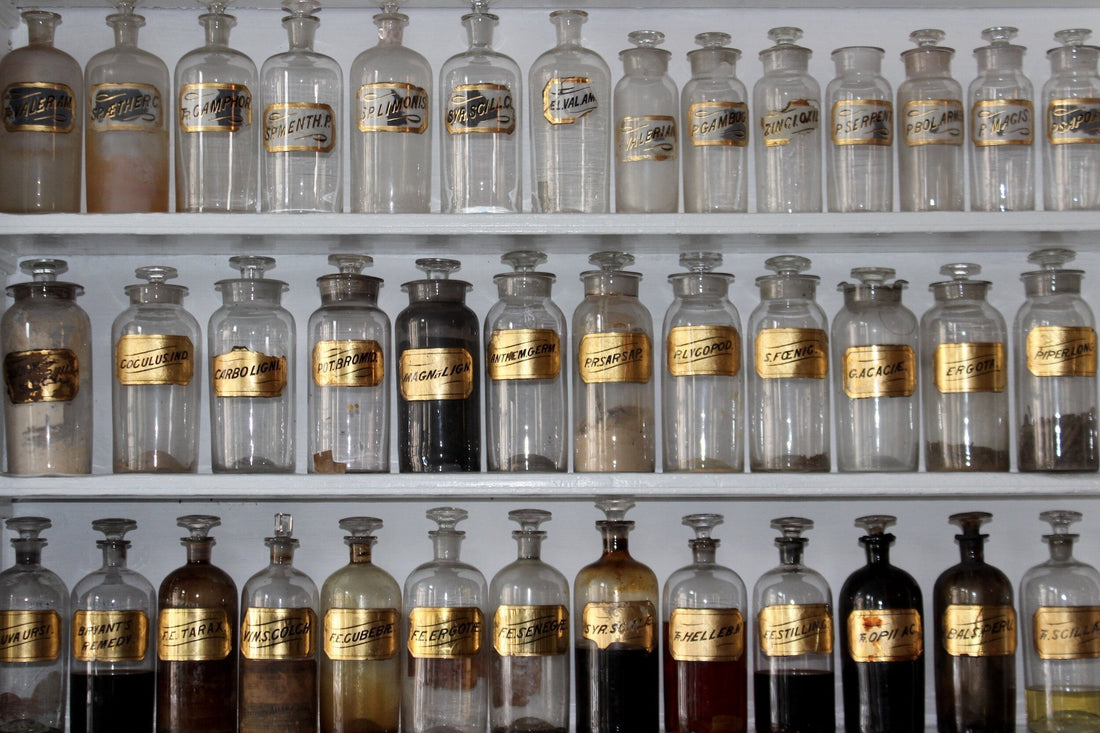
What is an Apothecary Really?
Share
written by Etecia Burrell
Originally published on Letthemflourish.com January 4, 2025
Apothecary is a term that originally referred to a person who prepared and sold herbs for medicinal purposes. Beginning in the 1700s the term has been used to refer to the place of business where the person dispensed herbal medicines they prepared and offered general medical advice and a range of services to patients. One of the first apothecaries documented in the United States opened in 1729, by Irish immigrant Christopher Marshall located in Philadelphia.

An Apothecaries' “research” and “study” of herbal and chemical ingredients was a precursor to the modern sciences of chemistry and pharmacology. White colonizing settlers who called themselves physicians were few in number and often self-trained using enslaved Africans in their experimentations. Barbers were the first “surgeons” in the United States. It is no wonder why the Western Healthcare system continues to fail Black and Brown communities.
Without access to Western medicine, African healing systems have survived and flourished in the Americas since White people captured us and brought us here by force. The neglect of the enslaved forced Africans to tend to their own medical needs. African priests or conjurers, midwives, and herbalists initiated into their trade before being brought to the Americas carried with them their traditional knowledge and practices and sometimes even seeds of traditional herbs. Because White physician services were so expensive and often not effective, plantation owners often relied on the enslaved African healers to treat not just enslaved but also their own families.

The formulas and treatments of various diseases and afflictions developed by enslaved Africans greatly influenced the American pharmacopeia that is officially used in the medical system today. Enslaved Africans were sometimes forced by plantation owners to give up their formulas so that they could patent them and make the profit of course, without any compensation to the enslaved or acknowledgment of the origins. Rarely, enslaved Africans were able to use their formulas as leverage to buy their freedom.
Today, We carry with us the knowledge and wisdom of traditional medicines that have been preserved by our ancestors and passed down to us from our elders. Traditional medicines, in the African way, refers to herbs, herbal materials, herbal preparations, and finished herbal products that contain whole plants, parts of plants, or other plant materials, including leaves, bark, berries, flowers, and roots, and their extracts as active ingredients intended for human therapeutic use or other benefits in humans. It also encompass several animal parts often used for rituals towards achieving perfect health. The traditional herbalist specializes in the use of traditional medicine to treat various ailments.

Many of the Western herbalists, often White women, who start prominent schools and online study courses teaching herbalism have stolen their recipes and methods from Black folks. They sell you courses and materials, you memorize the terms and “rules”. You know red raspberry leaf is good for uterine health, chamomile is good for sleep, lavender is good for relaxation. Where do you go from here? It is like you knowing your Sun, Moon, and Rising signs but not understanding your birth chart or how the planets and stars work together and affect your placement on any given day. How do you learn about the more intricate relationships between plants and person? These courses leave you with a surface level of understanding. The momeny when we really begin to speak the language of plants is through experiences. Our relationship with plants help to reveal more of a plant’s story and true nature. The best way to gain that deeper knowledge is by apprenticing with an elder. Work that I have done for over 10 years and continue to do.

Etecia Burrell, Co-Founder of The Sanctuary (Apothecary in Oakland), Oníṣègùn (Traditional Herbalist), Olòrìṣà (Priestess (of Yemaya)), and Birthworker
“Oníṣègùn is an herbalist who operates on Spirit. It is from this the phrase “If one says that a matter now lies in the hands of the Ifá priest, the Ifá priest would say it lies in the hands of Ifá; If one says that it lies in the hands of the Oníṣègùn, the physician would say it rest in the hands of Ọsanyin” was birthed. It is Ọsanyin who teaches an herbalist what herb to use. When anyone meets an herbalist for a matter it is Ọsanyin that informs the herbalist and tells what steps to resolve the matter.”
— Chief Jẹ́káyinfá Àyánwọyè
African people throughout the diaspora give honor and reverence to the traditional roles in community that ensure our collective flourishing. The role of the herbalist is vital in the community as it is a sacred occupation passed down through apprenticeship. The traditional herbalist attains thorough knowledge of spiritual practices and rituals, indigenous plants’ medicinal properties and the pharmaceutical steps necessary in turning such plants into medicine such as the selection, compounding, dosage, efficacy, and toxicity.
Too often I see places or online stores calling themselves an “apothecary”, but they just sell perfumes made with chemicals, scented candles made from plastics, or random books teaching spells for attaining a lover, trinkets & body glitter.
The role of the Apothecary in our community takes the place of the Medicine Market in African villages. I chose to open an apothecary because Spirit told me that it was what is needed for me to do in this lifetime to walk in my purpose and on a path of success. I also understand that we as Black folks need institutions where we can go to be safe, gather, organize, build, and heal. As a trained herbalist who has deep knowledge of the language of plants, experience with their healing properties, medicine making, human anatomy & physiology, as well as the understanding that we must treat ailments of the physical by addressing the spiritual. "I opened my apothecary at The Sanctuary in Oakland, California to be a place where folks can go to purchase herbal medicines, speak with a trained herbalist, undergo full health assessments, and receive custom formulas developed by an herbalist." The African way of living is to practice preventative care. Apothecaries support us in this lifestyle.

Yoruba Medicine Market
In Yoruba culture, where my spiritual lineage stems from, there are all kinds of herbs, stones or minerals, and animals used to treat illnesses that are sold by medicine women and Healers at Medicine Markets. Yoruba traditional medicine is a holistic health care system dating back to the beginning of time generally organized into specialties, such as: divination, herbalism, midwifery, and Spiritism. In these communities, there are medicine markets where Market Women offer traditional healers (i.e. Babalawo/Ìyán’ifá (Ifa Priests), Onisegun, Adahunse (Herbalists); Olorisa (Orisha Priests); Iya Agbébî (traditional birth midwives); etc.) the opportunity to get the materials needed for their work.
In a study by the World Health Organization in 2019 it was noted that 80% of the people in Africa, Latin America and Asia use traditional medicine to meet their primary health care needs. Traditional medicine is both a cultural tradition and a necessity in various indigenous communities including Black American communities, especially in the Southern region of the United States. My prayer is that we as indigenous people continue to re-member that indigenous medicine is Our medicine and indigenous technology is Our technology. May we have sovereignty over our health, food ways, education, and religion. Ase o!


Traditional Medicine Maker in Nigeria Medicine Market

